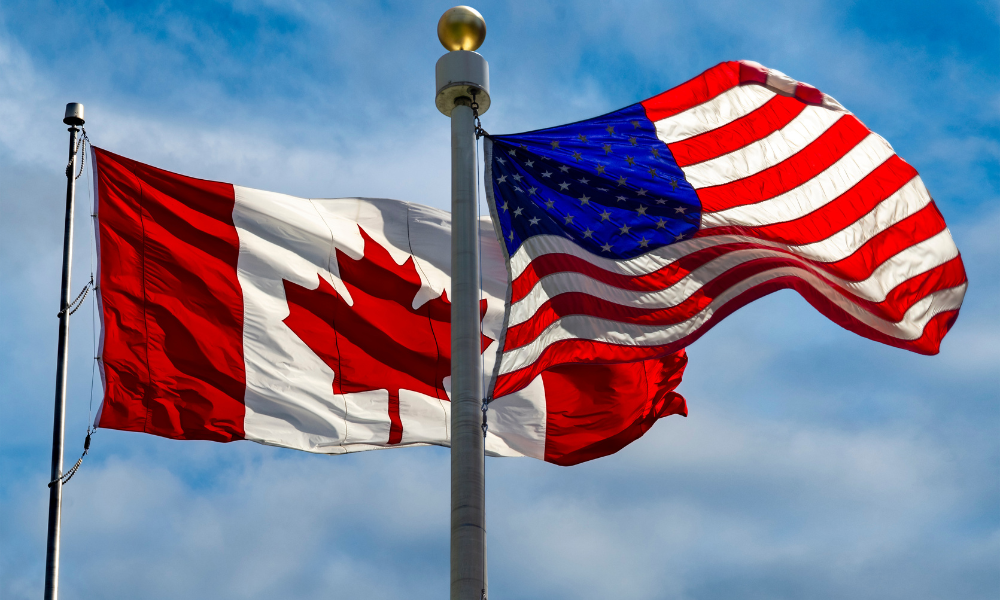Ottawa warns of strong retaliation as US tariffs on Canadian goods move forward next week

Foreign Affairs Minister Mélanie Joly said Canada must be ready to “fight back” as US President Donald Trump confirmed that steep tariffs on Canadian and Mexican products will take effect next week.
Speaking to reporters on Monday, Joly stressed the need for a firm response. “We need to be aware that the threat of tariffs is a real one and may continue for a while,” she said.
During a White House press conference with French President Emmanuel Macron, Trump directly addressed questions about whether he would move forward with tariffs.
“The tariffs are going forward on time, on schedule,” he stated.
The executive order, initially delayed until March 4 after Canada agreed to introduce new border security measures, imposes a 25 percent tariff on all Canadian imports and a 10 percent levy on energy.
Trump originally linked the order to fentanyl trafficking but later said the pause was meant to allow time for a “final economic deal.”
Prime Minister Justin Trudeau spoke with Trump by phone on Saturday ahead of the virtual G7 meeting.
While the discussion focused largely on Ukraine, the Prime Minister’s Office noted that Trudeau also provided an update on efforts at the Canada-US border to curb fentanyl trafficking.
Federal ministers and provincial premiers have travelled to Washington in recent weeks, trying to determine what it would take for Trump to abandon his tariff plans.
Despite these diplomatic efforts, Trump’s demands remain unclear.
US Customs and Border Patrol data indicates that the number of people and drugs crossing illegally into the United States from Canada is significantly lower than the volume coming from the country’s southern border.
Joly highlighted positive feedback from American officials regarding Canada’s border efforts. She pointed out that the US is a net exporter of guns, migrants, and drugs to Canada.
She emphasized the need for international cooperation, saying, “It is important that allies under that threat work together and work as a coalition by having the same types of countermeasures.”
Ottawa has promised retaliatory measures if the tariffs take effect, vowing to impose levies on billions of dollars’ worth of US goods.
Trump’s administration has pushed a tariff-heavy trade strategy. He recently signed an executive order imposing “reciprocal tariffs” to match the tax rates other countries apply to US imports.
These levies could take effect in April. Starting March 12, the US will enforce 25 percent tariffs on all steel and aluminum imports, including those from Canada.
Trump has also raised the possibility of extending tariffs to automobiles and forest products in April.
On Monday, Trump criticized past US trade deals, calling previous American leadership “fools.”
“Anybody that would agree to allow this to happen to our country should be ashamed of themselves,” he said. “I look at some of these agreements. I'd read them at night, and I’d say, ‘Who would ever sign a thing like this?’ So, the tariffs will go forward, yes, and we're going to make up a lot of territory.”
The Canada-United States-Mexico Agreement (CUSMA), which replaced NAFTA, was negotiated during Trump’s first administration.
At the time, he called it the “best agreement we’ve ever made.”
Experts and Canadian officials suggest Trump’s latest tariff threats may be a tactic to pressure Canada and Mexico ahead of the agreement’s mandatory 2026 review.



